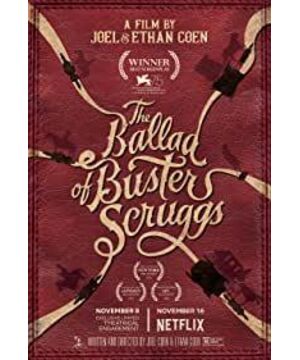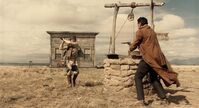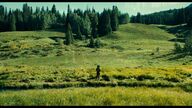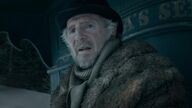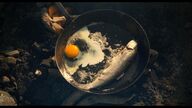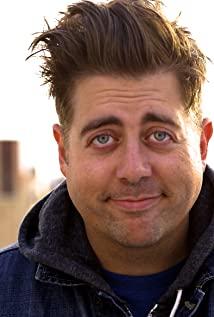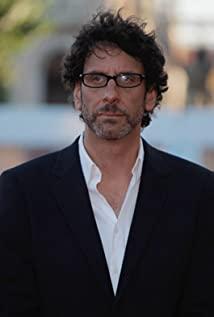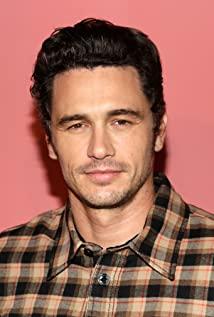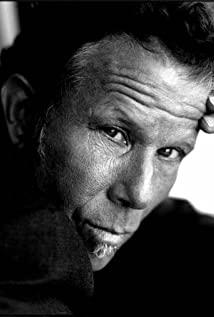My impression of the works of the Coen brothers is: one is a white world of ice and snow, and the other is that the characters always die suddenly and inexplicably.
This is an extremely cruel world, not the cruelty of "bad guys are cruel, and the human heart is vicious", but the cruelty of a higher level of "the world is not benevolent and everything is a humble dog". There does not seem to be a God in this world; or if there is, God does not seem to care about human suffering, nor is he interested in upholding justice for us. If this God has any intentions for our human world, it can only be said to be some kind of indifferent and mysterious intentions that we completely cannot understand.
In "The Ballad of Buster Scruggs", the ice and snow of the Great Lakes are replaced with the heat and sand of New Mexico, and the story has become a lot more lively. The lively and free ranger sang cheerful songs whenever he couldn't agree. However, the indifference and cruelty remain, just as you can't really expect to escape the emptiness of death by singing and dancing.
In such a world, our human situation is probably similar to that of the handless performer in the third story. This performer has no control over his own body and situation; aren't we also powerless to fight back against our destiny? However, despite the powerlessness and the misfortune, the performer still earnestly smeared powder every day, occupied the center of the stage very seriously, reciting the most sincere and moving poems over and over again; we have not always been like this, generation after generation. You sing it, I will appear on the stage"?
Poems repeated by this performer:
The first song is Shelley's "Ozmandias", which talks about Ramses II, who was the king of kings during his lifetime, and his accomplishments were so great, but after his death, the statue was utterly decayed, and only the yellow sand was reckless.
Next are Shakespeare’s sonnets 29 and 30, which are about the pains of life, but at the end they say, "But when I think of you, my dear friend, my heart is like a skylark from the shadow of the earthquake. The dawning sky".
Then interspersed with the story of Cain killing his brother in the "Bible", this is the foreshadowing of the last performer who was killed by his brother.
Finally, Lincoln’s "Gettysburg Lecture": "A government owned, governed by the people, and enjoyed by the people should live forever."
However, the end of the story is that the performer casually disappeared from the world, and he was perfectly replaced by a chicken that could count. The void is like sand and dust in the sky, and human beings' trembling pride and world-renowned achievements are no match for the erosion of this sand and dust. On the one hand, I think this performer is ridiculous and sad: in the face of poor mountains and bad land, Murano fools still have to recite Shelley and Shakespeare every night, maybe even a chicken is more useful than him. However, in human history, many people who pursue truth and progress are not just like this performer? They worked hard, but the "stupid compatriots" didn't understand them, let alone thank them. But what position do we have to blame those so-called "stupid compatriots"? Perhaps like the brother in this story, they had to be cruel and numb just to eat in a desolate world; perhaps, "playing the piano to a cow is not a stupid man or a stupid man" is also a kind of logic. So, on the other hand, I think this performer is very noble. He may be the type of person who "everyone lives in the gutter, but I want to look up at the stars". But whether it is ridiculous or noble, his life is meaningless. The audience will not even feel too sad about his death, because we only feel the word "suffer" when we see him alive.
This is the human situation in the world of the Coen Brothers. Some have dug a gold mine, some have met a beloved, some have outstanding marksmanship and excellent singing skills, and some are proficient in Shelley and Shakespeare. But dreams, ambitions, hopes, love-nothing can beat chaos and nothingness. Not only are we powerless to fight back, we can't even find any way to resist (even useless resistance), because from beginning to end, the world is not malicious to us, it just doesn't care about us.
So in the face of such a world, how should human beings deal with it?
In the world of the Coen brothers, this question is probably ridiculous. Do we still have options?
"You have to finish the deck of cards when you see the cards." The man with a harsh face sneered. (Illustration of the first story with words)
Fortunately, although this world is ruthless, from a certain angle it is also extremely fair. Complete chaos and disorder, treat everyone equally. Whether you are good or not, it doesn't matter how you choose. Regardless of whether you are a success or a piece of waste wood, time passes by at the same pace, and death comes quietly in the same car. You have almost unrestricted freedom. You can rob banks on a whim, or you can fight against robbers with a pan full of your body; you can be silent, you can chatter, or you can shout as hard as you can-just "that The driver doesn’t mean to slow down, whether he hears it or not.” (Illustration in Story 6)
Once you accept this ultimate meaninglessness, it means ultimate freedom and indifference. Anyway, our choice is not important. In the world of the Coen brothers, the impact of human choice on the ending of the story is almost negligible.
"On the vast ground, there are no traces of people, nor traces of human hands." (Illustration of the fourth story with words)
Maybe we should learn from the cowboy in the second story. When the noose of fate puts on the neck, relax and look at the pretty girl in the crowd.
Or we should learn from the fat man in the last story, even if the god of death is present, just keep his hat straight and move forward calmly.
So the world of the Coen brothers is the ultimate indifference, but it is also the ultimate compassion.
"This mercy is not out of reluctance, it descends from the sky to the world like rain." (The illustration and wording of the 3rd story are from Shakespeare's "The Merchant of Venice")
View more about The Ballad of Buster Scruggs reviews


